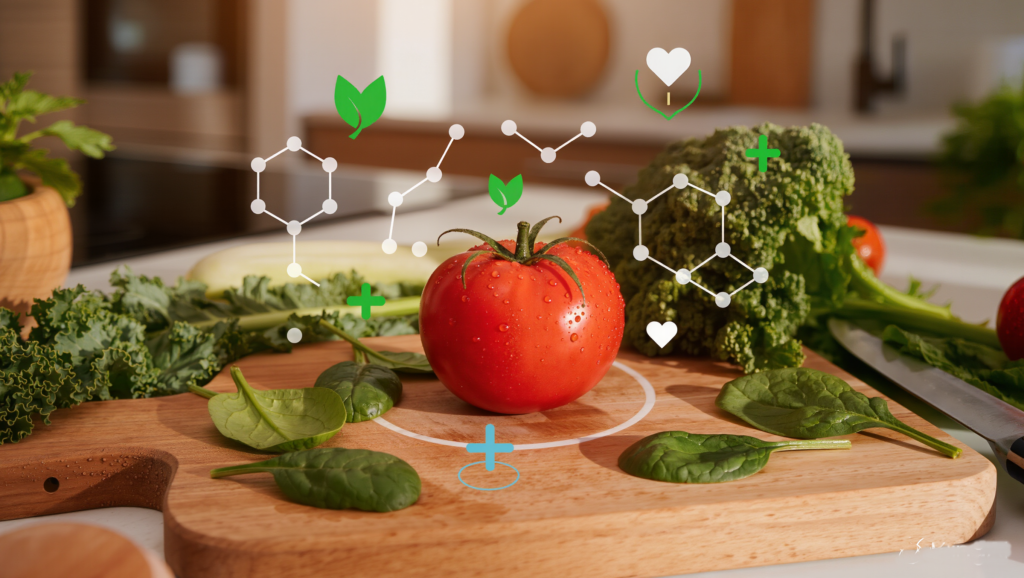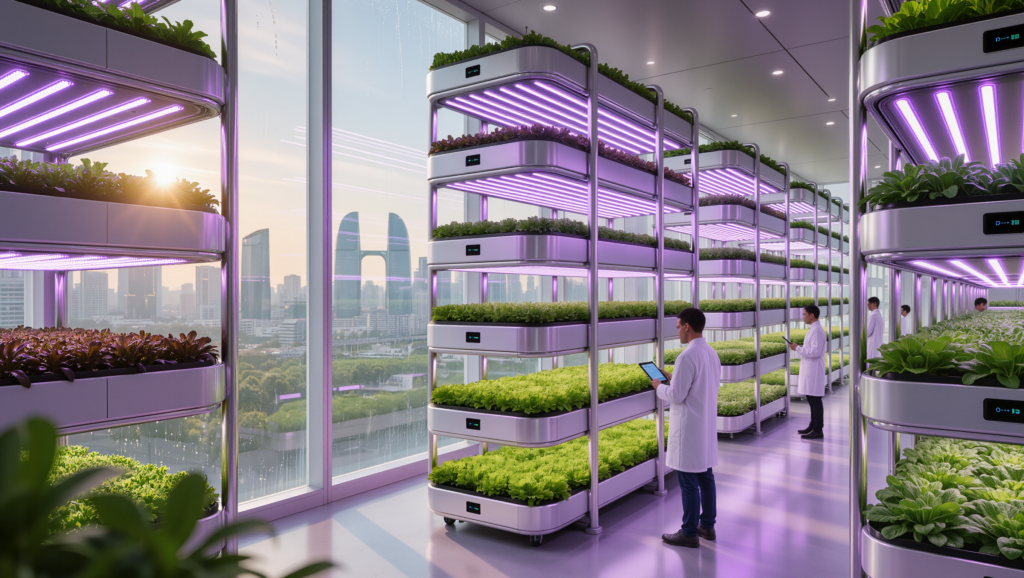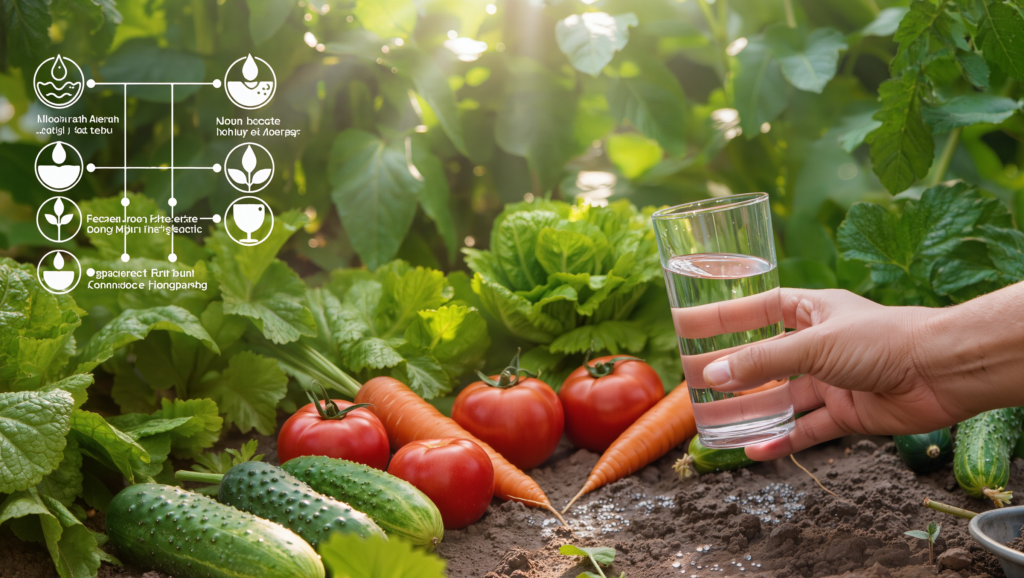Tomatoes have long been a staple in kitchens around the world—think pasta, salsa, salads, and summer picnic spreads. But recently, nutrition science is zeroing in on tomatoes as a hidden hero for mental health, especially when it comes to reducing social anxiety and elevating mood. Could one reason people struggle with anxiety be a simple lack of this everyday fruit in their diets? The evidence is mounting—and it’s a lot juicier than you might expect.
Tomatoes, Anxiety, and Depression: What the Science Says
Epidemiological Evidence
Several significant studies have highlighted tomato consumption as a statistically protective factor against depression and related anxiety symptoms—especially in older adults and populations prone to mood disorders.
- Japanese Elderly Study: In a cross-sectional study of nearly 1,000 older adults, those who ate tomatoes or tomato products 2–6 times per week were up to 46% less likely to report mild or severe depressive symptoms than those who ate them less often. No other vegetables showed such a strong link.
- Dose-Response: Risk reduction was even greater (52%) for those eating tomatoes daily. The effect persisted after controlling for lifestyle, exercise, smoking, and other major confounders.
- Not Just Correlation: While the design can’t confirm cause and effect, the strength of the relationship—where eating more tomatoes meant lower depression rates—suggests tomatoes really are unique among produce when it comes to mental health.
What Makes Tomatoes Special?
Lycopene Power
The secret weapon in tomatoes is lycopene, a potent antioxidant that gives tomatoes their rich red color and packs a remarkable punch for brain health.
- Neuroprotection & Brain Health: Lycopene is able to cross the blood-brain barrier, reduce neuroinflammation, and defend brain cells against the oxidative stress linked with anxiety and depression.
- Boosts BDNF (Brain-Derived Neurotrophic Factor): BDNF is a protein key to memory, mood regulation, and neurogenesis. Depression and anxiety disorders are often associated with lower BDNF. Lycopene enhances BDNF expression, making it a natural “antidepressant” and brain protector.
- Other Carotenoids: Tomatoes also contain beta-carotene, which supports neurotransmitter synthesis and neural resilience.
- Vitamin B6, Folate, Iron, Magnesium: All crucial for building serotonin, dopamine, and norepinephrine—main mood-regulating neurotransmitters.
Anti-Inflammatory Action
Chronic anxiety and depression are now understood to involve inflammatory processes in the brain and body. Tomatoes contain an array of anti-inflammatory compounds, from lycopene and beta-carotene to flavonoids and polyphenols, which help lower brain and systemic inflammation.
Tomato vs. Other Vegetables: Unique Mental Health Effects
It’s easy to assume that all vegetables are equally beneficial for mood—but in clinical studies, tomatoes stand apart.
- No Significant Link for Other Veggies: Cabbage, onions, carrots, and pumpkin showed little to no effect on subjects’ psychological health, suggesting that tomatoes have unique active compounds relevant to brain and mood.
- Cooking Increases Lycopene’s Effect: Unlike many nutrients, lycopene’s bioavailability increases when tomatoes are cooked; tomato sauce, soups, and stews may offer greater benefits than fresh tomato alone.
How Tomatoes Influence Anxiety Biochemistry
The Serotonin Connection
Tomatoes contain serotonin itself, as well as tryptophan and vitamin B6—precursors and cofactors necessary for making serotonin in the brain. Serotonin is pivotal for mood stability and anxiety resilience.
- Serotonin levels rise as tomatoes ripen: Optimal serotonin-boosting happens when you eat ripe, fresh, or well-cooked tomatoes.
- May help regulate the gut-brain axis: Tomato polyphenols and lycopene are also linked to better gut health—an emerging theme in anxiety research.
Antioxidant Protection
Lycopene and vitamin C protect neural tissue from damage, lower stress hormones, and may reduce cortisol spikes that drive chronic anxiety.
Clinical Trials: Lycopene, Tomatoes, and Brain Function
A meta-analysis of studies found that lycopene-rich foods can:
- Reduce oxidative stress, neuroinflammation, and neural apoptosis (brain cell death).
- Restore mitochondrial function and improve glycolipid metabolism—both vital for energy, resilience, and mood.
- Improve cognition, memory, and emotional regulation in animal and some human studies.
In other words, a diet rich in tomatoes (and lycopene) might support not just anxiety reduction, but overall cognitive health and protection against degenerative brain diseases.
Tomatoes in the Mediterranean Diet: Not the Whole Story (But Still Key)
While some studies argue the Mediterranean diet as a whole is not solely responsible for lower anxiety and depression rates, components of the diet—especially regular fruit and vegetable intake—show protective effects. Tomatoes, a staple of the Mediterranean table, remain noteworthy for their high lycopene and B vitamin content and their link to improved stress and anxiety scores.
Practical Tips: Getting More Tomatoes for Your Mind
- Aim for 2–6 tomato servings per week minimum: The mental health benefits are seen even at moderate intake, but daily eating is better.
- Cooked tomato products count: Sauce, puree, and roasted tomatoes are even more potent due to higher lycopene bioavailability.
- Pair with healthy fats: Olive oil and avocado help you absorb lycopene more efficiently—consider tomato salads with a drizzle of extra-virgin oil.
- Eat a variety: Cherry, roma, heirloom, paste—mix it up for a full spectrum of nutrients.
- Avoid ultra-processed tomato products: Look for whole, minimally processed options to maximize nutrients and avoid sugar and sodium.
Are There Risks or Downsides?
Tomatoes are safe for the majority, but can cause issues for those with allergies (rare), severe GERD, or intolerances. However, most people can benefit from integrating more tomatoes—fresh and cooked—into their daily or weekly eating patterns.
Tomatoes, Lycope, and Mental Health: The Evidence
Lycopene: The Tomato’s Mood-Boosting MVP
- Antioxidant Power: Lycopene is up to 10 times more powerful than vitamin E in fighting oxidative stress—a process closely tied to anxiety and depression.
- Neuroprotection: It crosses the blood-brain barrier, shields brain cells, fights inflammation, and ramps up BDNF (brain-derived neurotrophic factor) involved in mood regulation.
- Other Nutrients: Tomatoes are also packed with tryptophan, folate, magnesium, vitamin B6 and iron—all co-factors in the brain’s production of serotonin, dopamine, and norepinephrine.
Why Tomatoes Are Special (And Not All Veggies Do This)
- Unique Benefit: Studies found no similar protective link for mood from cabbage, onions, carrots, or pumpkin.
- Cooked Tomatoes Help: Heat makes lycopene more bioavailable—sauces, soups, and roasted tomatoes may offer even bigger benefits for mood and stress than raw tomato.
How Tomatoes May Reduce Anxiety
The Serotonin Connection
Tomatoes contain serotonin, plus the proteins and nutrients needed to make it in the body. Serotonin is the central neurotransmitter in anxiety regulation.
- Serotonin rises with ripeness: The effect is strongest in ripe, fresh or cooked tomatoes.
- Gut-Brain Axis Impact: Tomato polyphenols may improve gut microbial balance—another mechanism increasingly linked to emotional health.
Other Scientific Proof
- Neuroprotective Effects: Lycopene reduces oxidative stress, inflammation, and neural apoptosis (cell death)—processes involved in both degenerative disease and mood disorders.
- Cognition and Memory: Regular tomato intake is associated with better cognitive function and memory as well as mood stability.
How To Get More Tomatoes (and Benefits)
- 2–6 servings per week minimum: More is better, but benefits show up even at moderate intake.
- Variety counts: Fresh tomato, sauce, soup, salsa, roasted—all offer lycopene and mood nutrients.
- Pair with olive oil: Fat increases lycopene absorption—think tomato salad with a drizzle of EVOO.
Cautions and Allergy Notes
Tomatoes are safe for most people, but those with allergies or severe GERD should check with their doctor before upping their intake.
The Bottom Line
If you’re struggling with anxiety or depression, adding tomatoes to your weekly menu could be a simple, science-backed way to support your mood and brain health. From lycopene’s antioxidant wallop to tomato’s serotonin-boosting effects, you’re likely missing out if tomatoes aren’t a regular part of your plate.
Did you find this article helpful? Support us by following us on our social media for more content on natural health and wellness:: Youtube, Instagram, Facebook, Pinterest, Twitter (X)








